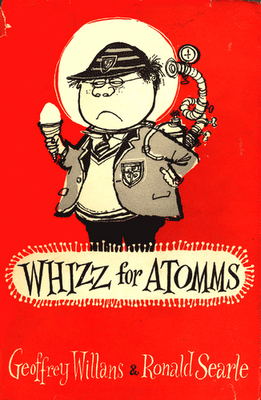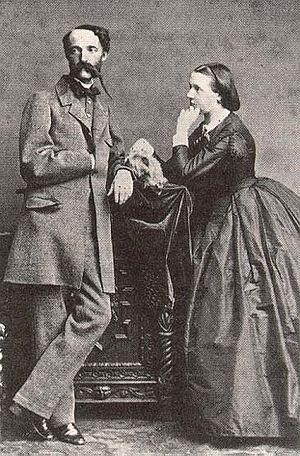In spite of its spelling, the word “fogou” is pronounced not, as we might expect, fog-ooh, but foo-goo. This helps to differentiate it from the exclamation one might make were one to find oneself suddenly engulfed in a peasouper. “Fogou” was brought to my attention by reader Rob Howard, who suggests that the word surely exists for the sole purpose of being spoken aloud by Mr Key on his radio show. Mr Howard may have a point. Of course, when the time comes for me to read this present essay on Hooting Yard On The Air, the existence of the word will at last be justified, much as Dennis Hopper’s bombs in the film Speed (Jan de Bont, 1994) achieve their purpose when they explode. I will have to say “fog-ooh”, too, but listeners should not interpret this as an indication that the ResonanceFM studio has become enswathed in a chill and spooky mist. If that eventuality does indeed occur, by dint of the mysteries of coincidence and synchronicity, I will endeavour to make that absolutely clear to listeners.
And there the matter might rest, save for the fact that your curiosity has been whetted and you probably want to know, now, what “fogou” means. Some of you may already have jumped to the conclusion that “fogou” is what you say when you are listening to a piece of classical music and suddenly realise it is “a polyphonic composition constructed on one or more short subjects or themes, which are harmonized according to the laws of counterpoint, and introduced from time to time with various contrapuntal devices” (Stainer and Barrett), but you would be wrong, wrong, wrong.
Pack up an overnight bag and go to Cornwall. Plot your journey on a map and arrange to visit Halliggye on the Trelowarren estate near Garras, Carn Euny, Boleigh near Lamorna, Pendeen, Trewardreva near Constantine, which is known locally as Pixie’s Hall or Piskey Hall, Chysauster, Boden Vean near Manaccan, Lower Boscaswell, Porthmeor, Higher Bodinar, Castallack, Treveneague, and Penhale Round. In each of these places you will find one of the fogous which have thus far been discovered by the types of people who go searching for fogous, or evidence thereof.
If, having done as you were told in the previous paragraph, you still don’t know what a fogou is, God help you. Actually, that is somewhat harsh. I should try to be a kinder Mr Key. So, though I am not God, I will help you.
A fogou is an underground, dry-stone structure found on Iron Age or Romano-British defended settlement sites in Cornwall. Similar structures have been found elsewhere, particularly in the Orkney Islands, where there is a fogou at Castle Bloody on Shapinsay. Quite why our ancestors built them is a matter of conjecture. They may have been used for magic rituals, or they may have been used for the storage of gulls’ eggs. There may have been magic rituals calling for the use of gulls’ eggs, possibly, which would kill two conjectures with one stone. I was going to say “kill two birds”, as the saying is, but having just mentioned gulls, twice, or more precisely their eggs, also twice, and the gull being a type of bird, I did not want to tie myself in verbal knots. Come to think of it, a knot is also a type of bird, so that little “killing two conjectures” sally didn’t get me very far. And the knots get even more entangled when we consider that, whether it is birds, gulls or knots, or conjectures we are killing with one stone, one of the discoveries that has been made in the remains of fogous is of large stone balls, or petrospheres, possible symbols of power within prehistoric society, and thus connected perhaps to ritual magic, whether or not that magic depended on the use of gulls’ eggs.
It is all a bit of a muddle in my head, to be honest. But now you know what a fogou is, and you can go looking for them, in Cornwall, or in the Orkneys, should that be your bag, daddy-o.




